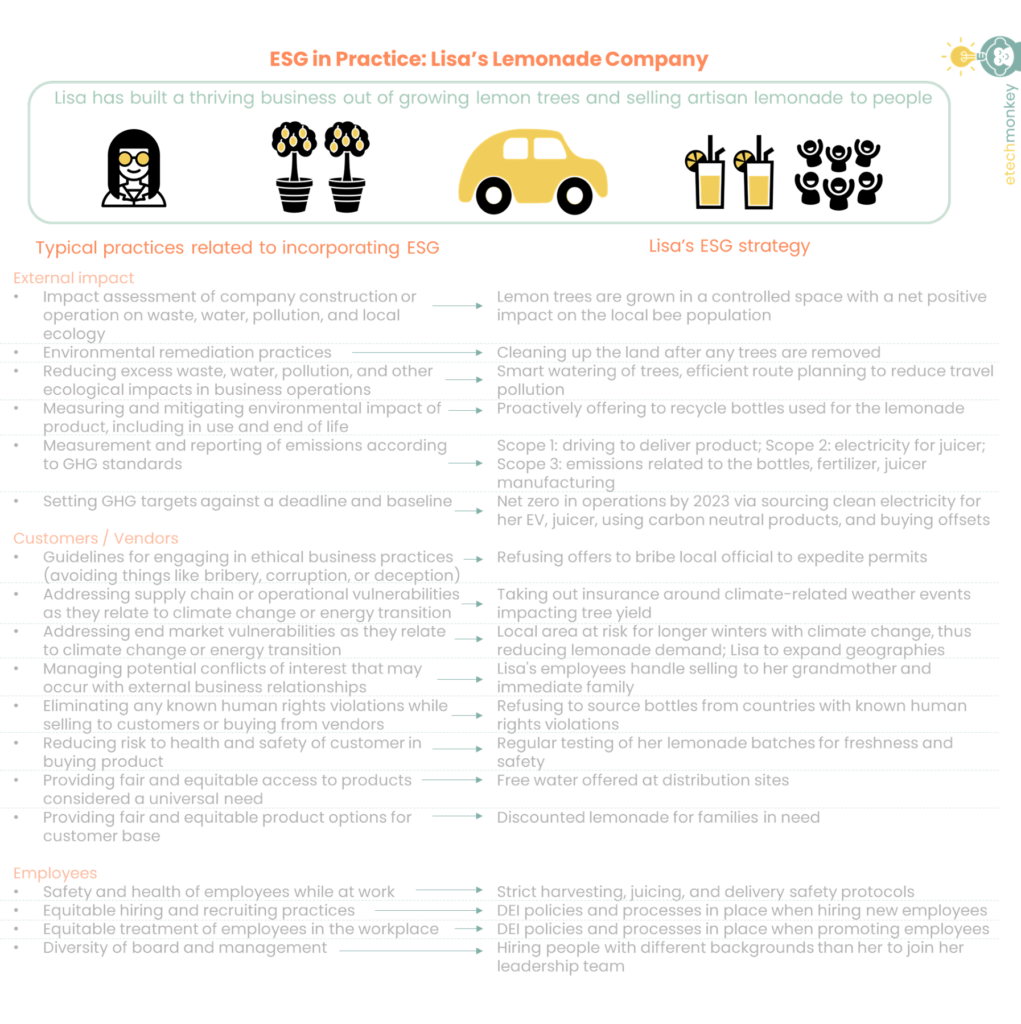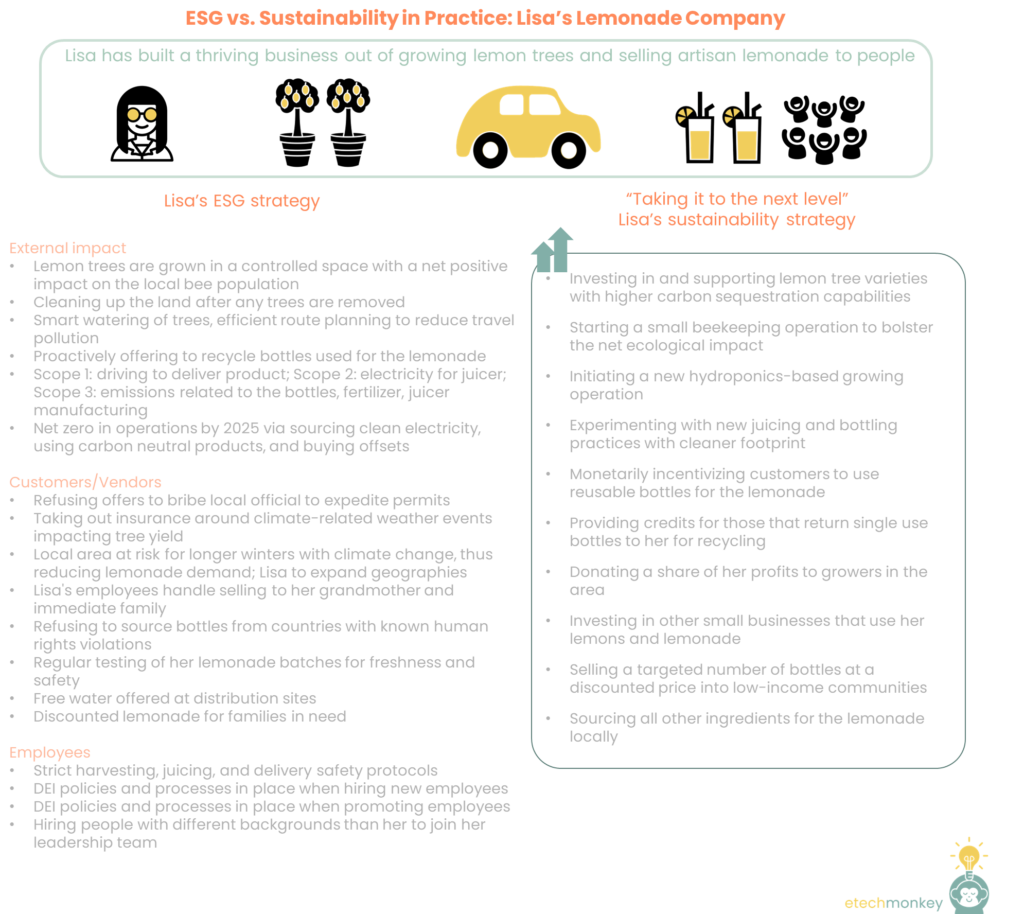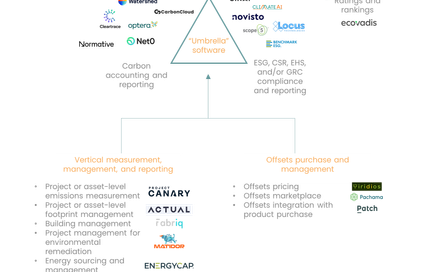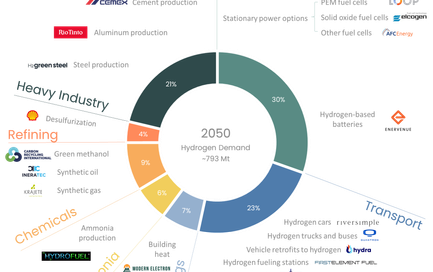
Why ESG is not the same as (and can be harmful to) sustainability
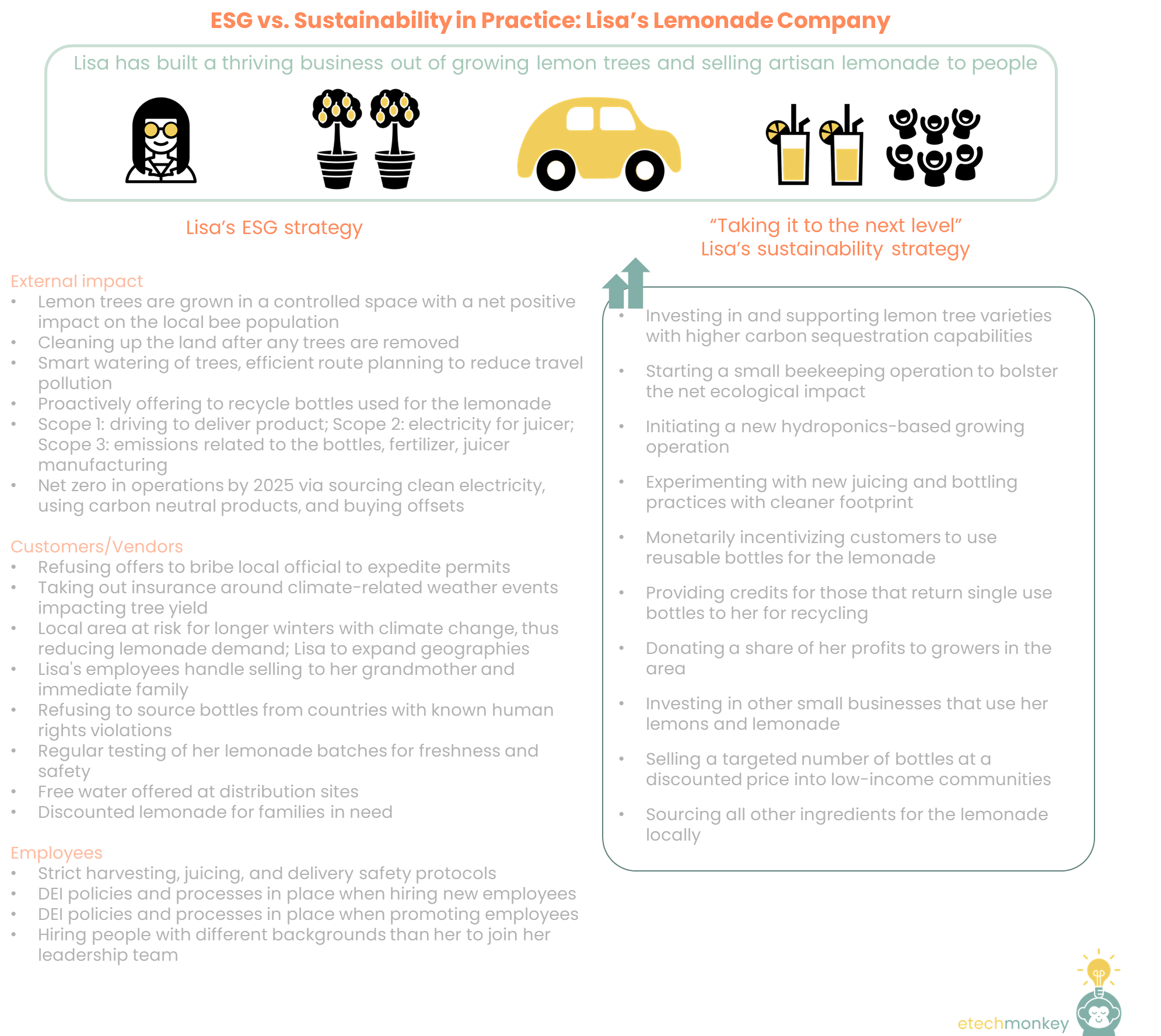
ESG is often brought up in the same context as sustainability (and climate and energy transition). In many cases, it’s use interchangeably with sustainability to refer to an organization's desire to “go green.” Take for example these recent articles about ESG:
- Asset managers divided by HSBC executive’s climate criticism
- Maybe There’s No Such Thing as an ESG Stock
- As the ‘Greenest’ Stocks Rise in Price, Some ESG Fund Managers Look Elsewhere
Which almost all exclusively refer to the climate movement. These aren’t necessarily wrong. Many aspects of ESG do overlap with transition or sustainability strategy. It’s often said that ESG is really “big E, little S and G,” which is to say that, out of the three letters of ESG, “E,” or environmental, is often seen and received as the most important.
Using ESG almost synonymously with energy transition or sustainability does one of two things though. 1) It does a disservice to the other aspects of ESG that are not climate-focused and 2) It can actually be hurtful to growth-oriented sustainability initiatives.
#1 is a little more obvious than #2. When the emphasis for ESG is placed so heavily on climate, and in particular emissions, the company can under-recognize efforts that have gone into other initiatives. Things like DEI, responsible labor practices, and business ethics that can get “underfunded” internally with a warped definition of ESG, which can potentially minimize the influence of the company on human relationships and social systems at times where it can be immediately impactful. ESG has to be recognized as a broad umbrella.
(SASB does this well. They’ve identified 26 areas that fall under ESG, of which 15 have no direct relation to the “E” in ESG.)
#2 is what I’ve come to realize over time – and it’s something that I don’t think is immediately obvious.
ESG’s intended purpose is to identify and address the environmental, social, governance issues that matter to a company. The keyword here is matter. In practice today, matter means what gets investors to put more money forward. Matter is what’s relevant to financial performance. Matter is “what does the company do that is different from other companies and raises its equity valuation.”
In other words, ESG is fundamentally a benchmarking framework. It’s used in practice to identify companies that stand out relative to other companies. And it’s used in this way by investors in particular. Which is why the questions that get asked over and over again in ESG circles are “why does ESG matter to financial performance?” “How is this going to make me more money?”
(To put SASB in the spotlight again, this is exactly why they have materiality calculators to determine which of the 26 areas of ESG actually matter for enterprise value across different industries.)
This can undermine true sustainability in leading a company to always look at their neighbor for guidance on what to do and to only focus on things that their investors consider linked to financial return, a mindset that tends to lead companies to take the most conservative path towards sustainability.
A good analogy is in school. The goal of school is to learn (or learn how to learn), but when a student focuses too much on getting good grades (“ESG score”) to get a good job or go to a good college (“financial return”) vs. actually learning (“being sustainable”), the incentive might be for the student to take easier classes or to just do enough to outcompete her fellow students. A parent (the “investor”) might say “why in the world are you taking that class? How is that going to get you a job?” Which is exactly the kind of advice that, while practical, gets in the way of true scholarship. And leads to kids not taking enough academic risks for learning’s sake. (And leads those same kids to take investment banking jobs down the line 😊)
Another way of putting it is that thinking that ESG is the same as sustainability disincentivizes companies to be creative, aggressive, and risk-taking in putting forward new sustainability growth initiatives. If all you care about is the measurement, you’re more likely to stick to what’s being measured.
Don’t get me wrong…ESG is still very important. It (in theory) establishes a fair and objective baseline across companies and industries. It allows the laggards to recognize that they are laggards and take the first step to catching up. It’s a requirement for being a good company. And establishing ESG standards and practices is critically important for catalyzing industry-wide movements forward in sustainability and governance.
But I think it’s wrong to mistake a company’s ESG strategy for sustainability strategy. Every company needs both. ESG can measure a company’s position vs. peers and allow a company to calibrate itself to accept industry best practices. Sustainability strategy will probably overlap in many ways but should always take things a step forward in ways that ESG cannot as a benchmarking tool. Every company has the opportunity to create differentiated, creative sustainability strategy in areas that are not captured by ESG.
In short, get good grades, but don’t forget to learn as well.
An example of what I mean using a fictional lemonade company:
